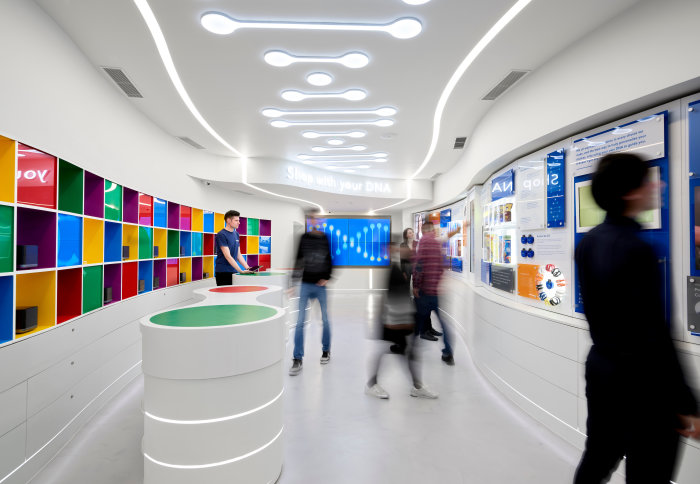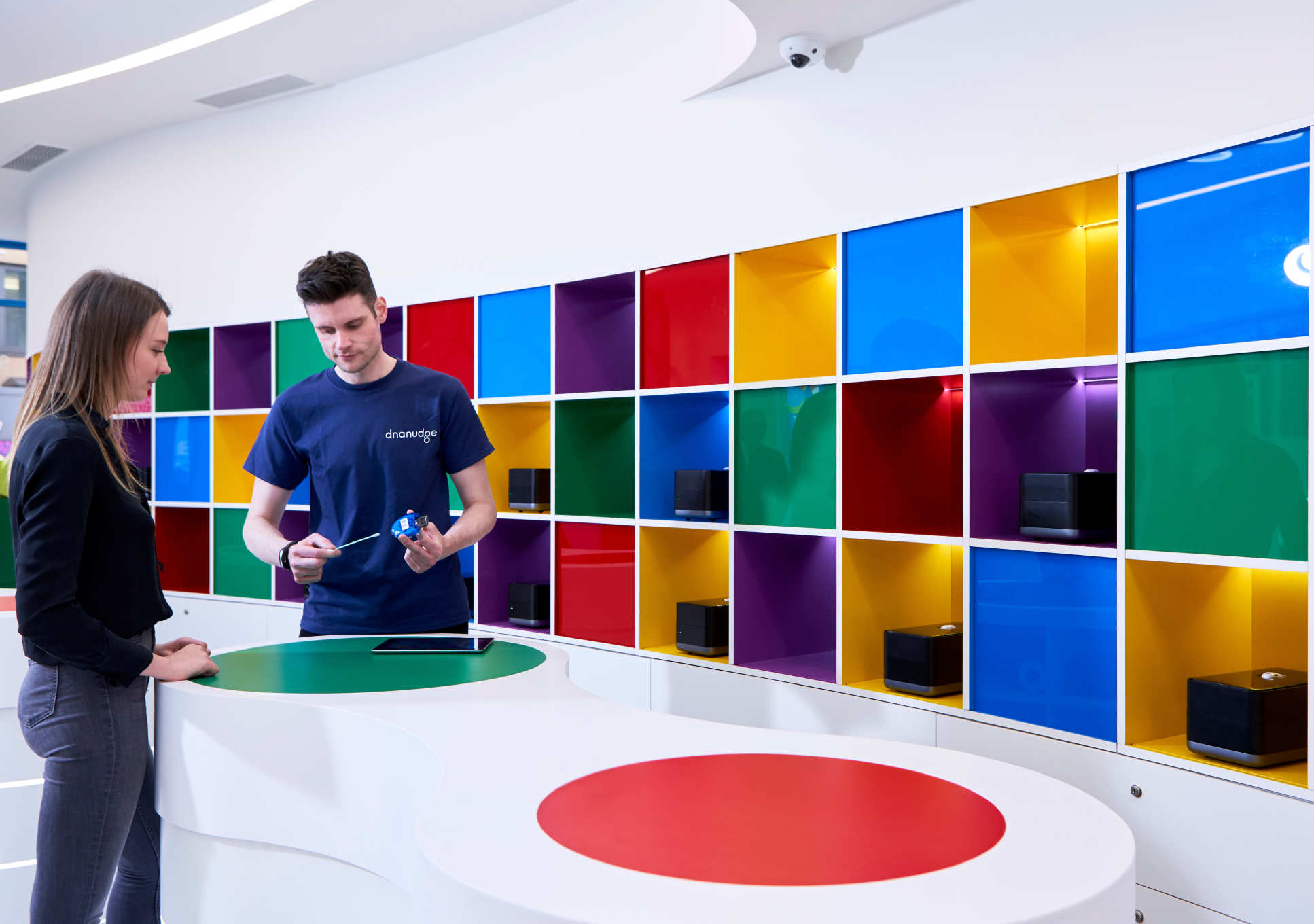Imperial startup launches flagship store in the heart of London

DnaNudge, co-founded by Imperial professor Chris Toumazou, has launched a flagship store in London’s Covent Garden.
DnaNudge offers the world’s first DNA-based service for healthier food choices. The new Covent Garden store provides on-the-spot DNA testing, which is then used to ‘nudge’ users to make healthier food shopping choices.
In-store DNA test
Customers can come to the store and have a DNA quick test, by having a cheek swab sample taken. The sample is then analysed and their genetic profile mapped to key nutrition-related health traits such as type 2 diabetes and hypertension. The results, combined with analysis of various lifestyle factors, are linked to a smartphone app or wearable band which can scan and recognise over 500,000 product barcodes in UK retailers.

The app or band will then tell the customer if the product they are considering buying is good for them or not – if the product is not good, the app will display a range of personalised recommended alternatives, for example a breakfast cereal with less sugar.
The band also incorporates a physical inactivity monitor, which monitors how sedentary the wearer has been. This allows the app to adapt its recommended product choices based on inactivity levels.
New approach to eating healthily
DnaNudge was co-founded by Professor Chris Toumazou from the Department of Electrical and Electronic Engineering and geneticist Dr Maria Karvela. Their labs are based at the Translation and Innovation Hub (I-HUB) at Imperial's White City Campus.
Their innovation uses novel optical DNA detection technology on a single cartridge. The optical detection technology was developed in collaboration with TTP in Cambridge, where the CEO and core development team are Imperial alumni.
Professor Toumazou said: “What we’re offering is a completely new approach to eating more healthily – using genetic insight into well-understood health risk factors and combining this with lifestyle “nudges” based on your inactivity levels, so that we can all make better day-to-day decisions about what we buy.

“This is a completely new way of thinking about what we’re eating, how much we’re moving, and making a big impact through small changes.”
Shirley Cramer, CEO of the Royal Society for Public Health, added: “This is a very exciting innovation and a really novel example of how personalised technology can support the public in making healthier choices. We know how difficult it can be at times to make healthy choices, particularly when doing our grocery shopping, so we welcome innovations which try to support that.
“DnaNudge provides a new approach to encourage us to change our shopping behaviour, by offering ground-breaking technology which optimises food choices based on an individual’s own unique genetic profile, as well as their level of activity. We think this has huge potential to change shopping behaviour in the future, and to encourage us all to make healthier choices; all of which is important if we are to turn the tide in preventing and managing major health issues such as obesity and Type II diabetes.”
The team hope that every day small product swaps can lead to big, positive changes to health in the long term.
Article text (excluding photos or graphics) © Imperial College London.
Photos and graphics subject to third party copyright used with permission or © Imperial College London.
Reporter
Joanna Wilson
Communications Division